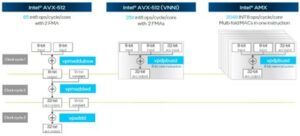
Big tech brands including IBM, Meta, Intel, Red Hat and Oracle are banding together with universities and organizations such as NASA to create a community that develops open and responsible AI tech - just as regulators begin looking at legislation.
The AI Alliance claims to have more than 50 founding members and collaborators globally, including many well-known names in the IT industry such as Dell, AMD and the Linux Foundation.
They claim they are coming together to support open innovation and open science in AI development, with an emphasis on responsible AI and ensuring scientific rigor, trust, safety, and security, as well as economic competitiveness.
Another goal of the community is to "inform the public discourse and policymakers on benefits, risks, solutions and precision regulation for AI," which sounds to us like the AI Alliance members want to influence any governance over AI as well as the broader narrative regarding it.
This may be because there is growing public concern about AI and its uses. A survey by the Ada Lovelace Institute in the UK found that more than 50 percent of the public said they were somewhat or very concerned about the uses of AI, with driverless cars and autonomous weapons cited as major worries.
It also found that more than half had reservations about relying too heavily on AI rather than on human professional judgement in areas such as diagnosis of medical conditions, and many were concerned about who would carry responsibility for mistakes made when using this technology.
The move also comes while efforts to regulate AI are underway in many countries around the world, with the European Parliament passing the AI Act in the summer, and current talks underway by politicos anticipating a big pushback from Big Tech. Across the pond, US senators recently proposed a federal agency to oversee the development and use of AI systems.
The AI Alliance said its first acts will be the formation of member-driven working groups across major topical areas, plus the establishment of a governing board and technical oversight committee. This will put in place overall project standards and guidelines.
The AI Alliance said members will pool resources and knowledge to address safety concerns, and will also provide a platform for sharing and developing solutions that "fit the needs of researchers, developers, and adopters around the world."
Among its goals is the development of benchmarks and evaluation resources to support the responsible development and use of AI systems, which includes the creation of a catalog of vetted safety, security and trust tools.
Another is to build an ecosystem of open foundation models, including highly capable multilingual and science models with the noble aims of addressing society-wide challenges in climate, education, and beyond.
Additionally, the Alliance wants to nurture an AI hardware accelerator ecosystem and involve the academic community in supporting researchers and students to contribute to AI models and research projects.
Several prestigious academic institutions are listed as members, including Imperial College London, Cornell University, Harvard and Berkeley universities, The University of Tokyo and University of Notre Dame.
Bigger names in AI missing
Yet while the AI Alliance claimed its members are "the builders of the hardware and infrastructure that supports AI training and applications" and "the creators of some of today's most used open models," there are some notable absences. GPU giant Nvidia is not a member, nor is ChatGPT developer OpenAI or the latter's biggest investor, Microsoft.
IBM chief Arvind Krishna described the formation of the community as a key moment in defining the future of AI. "IBM is proud to partner with like-minded organizations through the AI Alliance to ensure this open ecosystem drives an innovative AI agenda underpinned by safety, accountability and scientific rigor," he said in a statement.
Cornell University vice president for Research and Innovation, Krystyn J Van Vliet, said that open innovation has already spurred advances in many fields, and thrives on experimentation and dialog.
"We look forward to contributing to the discussions, technologies, and advances that will help the world develop knowledge and tools using AI, as well as a shared sense of responsibility for positive impact on society," she said. ®
- SEO Powered Content & PR Distribution. Get Amplified Today.
- PlatoData.Network Vertical Generative Ai. Empower Yourself. Access Here.
- PlatoAiStream. Web3 Intelligence. Knowledge Amplified. Access Here.
- PlatoESG. Carbon, CleanTech, Energy, Environment, Solar, Waste Management. Access Here.
- PlatoHealth. Biotech and Clinical Trials Intelligence. Access Here.
- Source: https://go.theregister.com/feed/www.theregister.com/2023/12/05/ai_alliance_opens_its_doors/
- :has
- :is
- :not
- 50
- a
- About
- academic
- accelerator
- accountability
- across
- acts
- address
- addressing
- adopters
- advances
- agency
- agenda
- AI
- AI models
- AI systems
- AI training
- aims
- Alliance
- already
- also
- AMD
- an
- and
- and infrastructure
- anticipating
- any
- applications
- ARE
- areas
- around
- Arvind Krishna
- AS
- At
- autonomous
- banding
- BE
- because
- begin
- benchmarks
- benefits
- Berkeley
- Beyond
- Big
- Biggest
- board
- brands
- broader
- build
- builders
- by
- capable
- carry
- cars
- catalog
- challenges
- ChatGPT
- chief
- cited
- claim
- claimed
- claims
- Climate
- CO
- collaborators
- College
- comes
- coming
- committee
- community
- competitiveness
- Concern
- concerned
- Concerns
- conditions
- contribute
- contributing
- cornell
- countries
- create
- creation
- creators
- Current
- defining
- Dell
- described
- develop
- Developer
- developers
- developing
- Development
- develops
- diagnosis
- dialog
- discourse
- discussions
- driverless cars
- drives
- Economic
- ecosystem
- Education
- efforts
- emphasis
- ensure
- ensuring
- establishment
- Ether (ETH)
- European
- European Parliament
- evaluation
- Federal
- Fields
- First
- fit
- For
- formation
- forms
- Forward
- found
- Foundation
- founding
- from
- future
- Future of AI
- giant
- Globally
- goal
- Goals
- governance
- governing
- GPU
- Group’s
- Growing
- guidelines
- had
- Half
- Hardware
- harvard
- hat
- Have
- he
- heavily
- help
- highly
- HTTPS
- human
- IBM
- Impact
- Imperial
- Imperial College
- Imperial College London
- in
- includes
- Including
- industry
- influence
- inform
- Infrastructure
- Innovation
- innovative
- institutions
- Intel
- investor
- involve
- IT
- IT industry
- ITS
- jpg
- just
- Key
- knowledge
- Legislation
- like
- like-minded
- linux
- linux foundation
- Listed
- London
- Look
- looking
- made
- major
- many
- May..
- medical
- member
- Members
- Meta
- Microsoft
- mistakes
- models
- moment
- more
- most
- move
- names
- NARRATIVE
- Nasa
- needs
- Noble
- nor
- notable
- nurture
- Nvidia
- of
- on
- open
- open innovation
- OpenAI
- or
- oracle
- organizations
- over
- overall
- oversee
- Oversight
- parliament
- partner
- Passing
- percent
- Place
- platform
- plato
- Plato Data Intelligence
- PlatoData
- plus
- policymakers
- POND
- pool
- positive
- Precision
- president
- prestigious
- professional
- project
- projects
- promote
- proud
- provide
- public
- put
- rather
- recently
- Red
- Red Hat
- regarding
- Regulate
- Regulation
- Regulators
- relying
- research
- research and innovation
- researchers
- Resources
- responsibility
- responsible
- risks
- s
- Safety
- Said
- Science
- scientific
- security
- SENATORS
- sense
- shared
- sharing
- she
- Society
- Solutions
- some
- somewhat
- standards
- Statement
- Students
- such
- summer
- support
- Supporting
- Supports
- Survey
- Systems
- Talks
- tech
- Technical
- Technologies
- Technology
- than
- that
- The
- The Future
- the UK
- the world
- There.
- they
- this
- thrives
- Through
- to
- today
- together
- tokyo
- too
- tools
- Training
- Trust
- Uk
- underpinned
- Underway
- Universities
- university
- University of Tokyo
- us
- US senators
- use
- used
- uses
- using
- very
- vetted
- vice
- Vice President
- want
- wants
- we
- Weapons
- WELL
- well-known
- were
- when
- which
- while
- WHO
- will
- with
- working
- Working Groups
- world
- would
- zephyrnet











